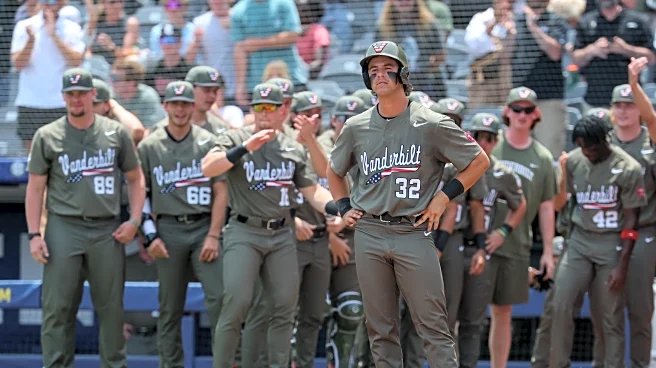What's Happening?
Licensed clinical social worker Kristin Anderson and other psychotherapy experts have identified common mistakes that can harm friendships, emphasizing the importance of intentionality and care in maintaining
these relationships. According to Anderson, strong friendships require follow-through and sometimes uncomfortable conversations, but most relationship ruptures can be repaired if both parties are willing to work through issues together. Experts note that friendships are dynamic and evolve as individuals grow, necessitating ongoing communication and adjustment. Common mistakes include giving unsolicited advice instead of support, consistently excluding friends from gatherings, feeling entitled to a friend's time, not acknowledging significant life events, regularly flaking on plans, and failing to consider a friend's circumstances. These actions can lead to misunderstandings and hurt feelings, but experts suggest that open communication and accountability can help repair and strengthen friendships.
Why It's Important?
Friendships play a crucial role in personal well-being and social support networks, impacting mental health and resilience. Understanding and addressing common mistakes in friendships can prevent relationship breakdowns and promote healthier interactions. By fostering intentional and considerate friendships, individuals can enhance their emotional support systems, which are vital for coping with life's challenges. The insights provided by psychotherapy experts highlight the need for awareness and proactive communication in friendships, which can lead to more fulfilling and supportive relationships. This understanding is particularly important in a society where social connections are increasingly recognized as key factors in mental health and overall well-being.
What's Next?
Individuals are encouraged to reflect on their own behaviors and communication patterns within friendships. By acknowledging and addressing these common mistakes, people can work towards repairing and strengthening their relationships. Experts suggest that friends should engage in open dialogues about their needs and expectations, allowing for adjustments as circumstances change. This proactive approach can prevent misunderstandings and foster deeper connections. As awareness of these issues grows, it is likely that more people will seek guidance from mental health professionals to improve their interpersonal relationships, contributing to a broader societal shift towards healthier social interactions.
Beyond the Headlines
The exploration of friendship dynamics by psychotherapy experts sheds light on the broader cultural and social implications of interpersonal relationships. As society becomes more aware of the importance of mental health, the role of friendships in providing emotional support and resilience is increasingly recognized. This focus on intentionality and communication in friendships may lead to a cultural shift towards valuing and prioritizing personal relationships alongside professional and other commitments. Additionally, the emphasis on repairing relationship ruptures highlights the potential for growth and healing within friendships, offering a model for conflict resolution and emotional intelligence that can extend beyond personal interactions.










